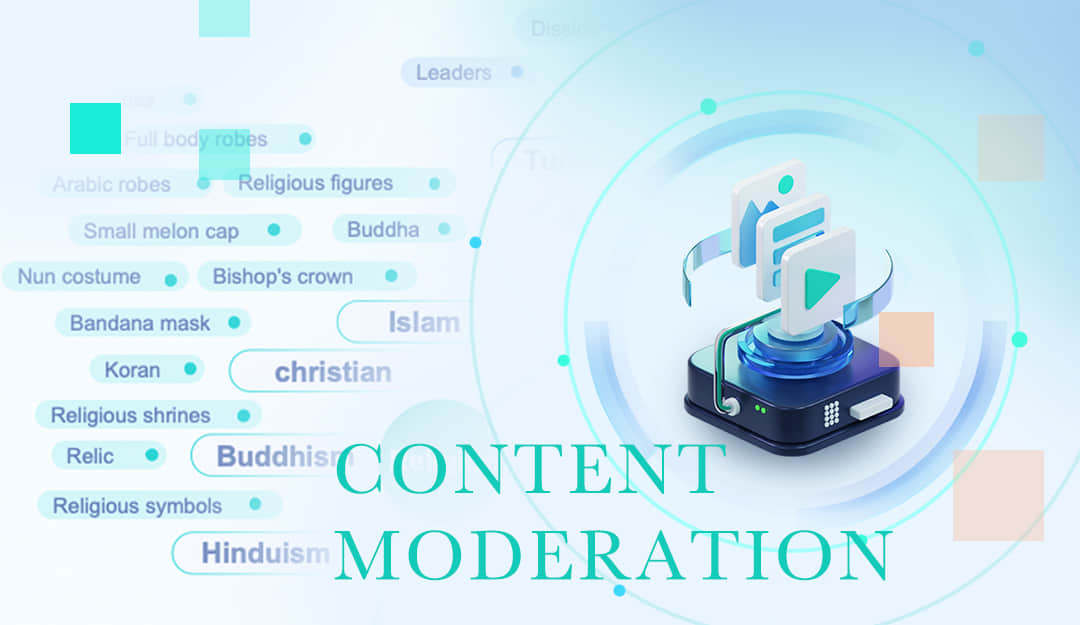In the digital age, social platforms, e-commerce sites, and live streaming services are essential parts of daily life. However, these platforms face significant challenges in content regulation. To ensure legal operation and a healthy user experience, effective content regulation is crucial. Here are some content tags prohibited in most countries and additional tags that need identification.
Common Prohibited Content Tags
1. Violence: Involves violent behavior, weapon use, or graphic scenes.
2. Pornography: Includes nudity, sexual acts, and sexual innuendo.
3. Politics: Sensitive political topics, government criticism, and political events.
4. Religion: Religious beliefs, disputes, and discrimination.
5. Hate Speech: Racial, gender discrimination, and hate speech.
6. Drugs: Drug use, trafficking, and promotion.
7. Gambling: Gambling activities, websites, and promotion.
8. Fraud: Scams, false information, and phishing websites.
9. Privacy: Personal privacy leaks and unauthorized use of information.
10. Terrorism: Terrorist activities and organization promotion.
11. Suicide and Self-harm: Describing or promoting suicide and self-harm.
12. Misinformation: Rumors, fake news, and misleading information.
13. Copyright: Piracy and unauthorized content use.
14. Protection of Minors: Content unsuitable for minors, such as violence and pornography.
Additional Tags Requiring Identification
1. Medical Misinformation: Unverified medical information, fake drug promotion, and false health advice.
2. Environmental Harm: Promoting or encouraging environmentally destructive behaviors, such as illegal logging and pollution.
3. Animal Abuse: Content involving animal cruelty, illegal hunting, and abusive experiments.
4. Extremism: Promoting extremist ideologies, inciting violence, or extreme actions.
5. Dangerous Activities: Encouraging or depicting dangerous behaviors, such as high-rise climbing without safety gear.
6. Defamation: Unfounded defamation or slander against individuals or organizations.
7. Harassment: Targeted or continuous harassment, bullying behaviors.
8. Misuse of Technology: Promoting hacking techniques, illegal software, or tutorials for cyber-attacks.
9. Financial Fraud: Fake investment advice, Ponzi schemes, and pyramid schemes.
10. Pseudoscience: Promoting pseudoscientific theories, such as anti-vaccine movements and conspiracy theories.
11. Obscene Language: Use of vulgar, offensive, or insulting language.
12. Identity Theft: Fake identity information and impersonation of others.
13. Cross-border Crime: Promotion or execution of cross-border illegal activities, such as smuggling and human trafficking.
14. Unauthorized Gatherings: Promoting or organizing unauthorized gatherings or demonstrations.
15. Cultural Heritage Violation: Destruction or illegal trade of cultural heritage and artifacts.
16. Counterfeit Products: Promotion or sale of counterfeit and substandard products.
17. Financial Crimes: Money laundering, tax evasion, and financial fraud.
18. Misleading Advertising: Deceptive advertisements and false promotions.
19. Resource Misuse: Overuse or illegal use of natural resources.
To address these challenges, our company has developed an advanced real-time content review system with the following features:
1. Real-Time Review: Detects and handles prohibited content instantly.
2. High-Precision Identification: Uses AI to accurately identify various content types.
3. Multi-Language Support: Reviews content in multiple languages.
4. Automated Processing: Blocks, deletes, or flags prohibited content automatically.
5. Customizable Rules: Allows platforms to set content review rules based on their needs and local laws.
6. User-Friendly Interface: Simplifies monitoring and managing content review.
Effective content regulation is vital for the operation of social platforms, e-commerce sites, and live streaming services. By identifying and prohibiting banned content tags, platforms can ensure legal operation, maintain user experience, and promote social harmony. Our real-time
content review system helps platforms tackle content regulation challenges, reduce risks, and achieve long-term healthy development. If you're looking for a reliable content review solution, our product is the best choice.
